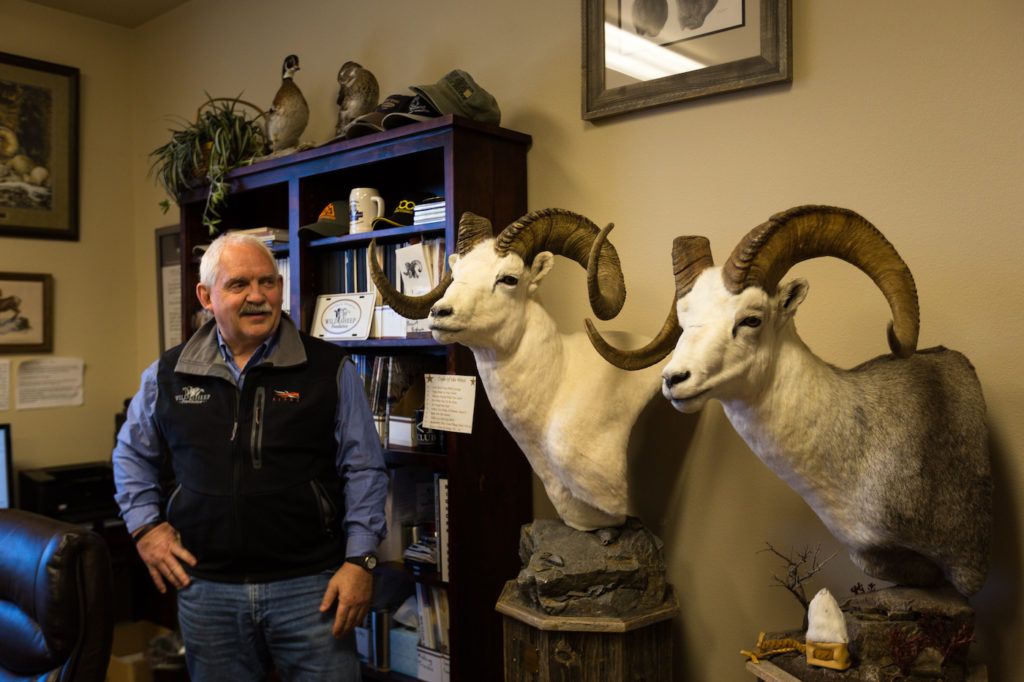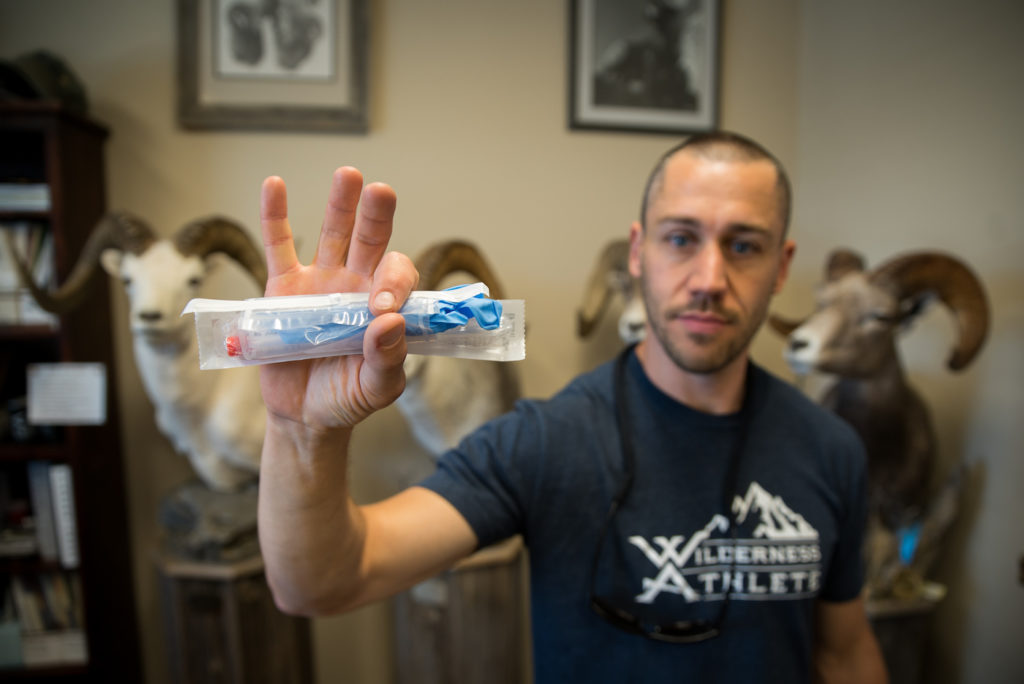Editors Note:
We’d like to thank the Wild Sheep Foundation and Kevin Hurley, the WSF’s Senior Conservation Director, for allowing us to re-publish this important piece from the Biologist’s Corner column in the Summer 2017 Issue of Wild Sheep™ Magazine.
These days, to become a wildlife biologist and/or a wildlife veterinarian, it takes years of study, training, and experience. Most agency wildlife biologist positions require a graduate academic degree, along with a big dose of practical wildlife experience and field time.
Requirements to become a wildlife veterinarian include four years of undergraduate schooling, four years to attain a DVM degree, followed by additional training and experience on a variety of critters, large and small. Often, DVM’s pursue Master’s or Ph.D. advanced degrees, and possibly post-DVM residency programs. Only a small percentage of North American veterinarians focus their work on wildlife.
Fortunately, WSF is able to collaborate with and support the efforts of many wildlife biologists and wildlife veterinarians in the U.S. and Canada. Their combined efforts play a huge role in the conservation, management, and health of wild sheep populations.
In April 2017, Dr. Peregrine Wolff of the Nevada Department of Wildlife joined the WSF Board of Directors, bringing an impressive resume, years of top-notch work experience, “field-cred”, and valuable knowledge to WSF’s portfolio. In addition to their individual and collective work, Peri and her veterinary colleagues in wild sheep range have helped promote collection of biological samples from hunter-harvested animals, to gather additional information on pathogen presence in wild sheep and other wildlife.
Wild sheep hunters, whether DIY residents or guided non-residents, have an opportunity, perhaps even an obligation, to help wildlife health professionals gather much-needed biological samples from harvested animals.
For example, in Dall’s and Stone’s sheep range in the North, approximately 1,100-1,300 rams are harvested annually in Alaska, the Yukon Territory, the Northwest Territories, and in northern British Columbia.
Quite simply, there is no way that an agency wildlife manager or veterinarian would ever have the budget, resources, and field staff to obtain biological samples from more than 1,000 thinhorn sheep every year. Here, then, is an opportunity that lies before every Dall’s or Stone’s sheep hunter that takes to the mountains this season!
At the recently-completed Thinhorn Sheep Summit II in Anchorage, Alaska, managers and vets in all four northern jurisdictions noted the importance of providing sampling kits to sheep hunters as they go to the field, hoping to connect on a ram this fall.
Efforts are underway to get sampling kits from Environment & Natural Resources into the hands of the Association of Mackenzie Mountain Outfitters (AMMO), as they guide non-residents this summer and fall in NWT. In the Yukon, Ministry of Environment is making sampling kits (including a nasal swab, and latex glove + whirl-pak for collecting fecal samples) available to Yukon sheep hunters, working with our Yukon WSF Chapter, the Yukon Outfitters Association, and the Yukon Fish & Game Association.
In Alaska, sampling kits have been prepared and shared with resident and non-resident sheep hunters. Our Alaska WSF Chapter, Resident Hunters of Alaska (RHAK), and Alaska Professional Hunters Association (APHA) and are working closely with Alaska Fish & Game Department officials to distribute and collect hunter-harvested samples.
In northern British Columbia, working with our Wild Sheep Society of BC Affiliate, a variety of Guide/Outfitter Associations, First Nations, and resident hunters via the BC Wildlife Federation and local rod and gun clubs, sampling kits are available to wild sheep hunters in the province.
These sampling kits are very small and very lightweight, so they are not a burden to pack with you, right next to your hunting license and your knife! These kits do NO good if they are left in your vehicle or at home, or, are somehow forgotten. Sheep hunters have an opportunity to collect incredibly valuable biological samples from harvested rams. Please do your part as hunters and citizen-scientists to help wild sheep management!!




